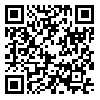Volume 9, Issue 2 (7-2021)
J Surg Trauma 2021, 9(2): 41-43 |
Back to browse issues page
Download citation:
BibTeX | RIS | EndNote | Medlars | ProCite | Reference Manager | RefWorks
Send citation to:



BibTeX | RIS | EndNote | Medlars | ProCite | Reference Manager | RefWorks
Send citation to:
Amouzeshi Z, Keramatinejad S, Dastjerdi R, Daryazadeh S. Necessity to empower clinical teachers, especially surgeons and emergency medicine specialists in breaking bad news. J Surg Trauma 2021; 9 (2) :41-43
URL: http://jsurgery.bums.ac.ir/article-1-271-en.html
URL: http://jsurgery.bums.ac.ir/article-1-271-en.html
MSc in public Health Nursing, Birjand University of Medical Sciences, Birjand, Iran
Abstract: (2903 Views)
- In the medical field, “breaking bad news” usually includes conditions in which a person has developed symptoms of a deadly disease, such as AIDS and cancer. However, in some other definitions, breaking bad news involved other situations, such as the symptoms of chronic diseases and painful situations, such as diabetes, failure of treatment plans, difficult and costly treatment plans, disability, amputation, and paralysis.
- Breaking bad news is the most critical type of relationship between a doctor or medical staff and patients. During this process, the doctor or another medical staff is required to convey bad news and other unpleasant information to patients. This news and information can include diagnosis with a dangerous illness, recurrence of a bad condition, or treatment failure, or even death. The issue of breaking bad news was first raised by Buck man in clinical research. According to Buck man, the bad news is defined as any news that leads to negative changes in a person’s attitude toward his future and can have significant psychological consequences for the person.
- The way bad news is conveyed is very important. In ancient times, people who transmitted bad news were called bad people and it was believed that bad fate awaited these people. Therefore, it is natural for patients or their companions who receive bad news on patients health status or his death from an inexperienced doctor to blame the doctor for the mentioned conditions and to behave aggressively toward the doctor.
- Most patients expect to be approached with empathy and compassion when presented with bad news. They also expect to receive information clearly and are concerned about ambiguities during a dangerous illness.
Type of Study: Letter to Editor |
Subject:
Educational
Received: 2021/03/14 | Accepted: 2021/06/8 | ePublished ahead of print: 2021/06/10 | Published: 2021/07/29
Received: 2021/03/14 | Accepted: 2021/06/8 | ePublished ahead of print: 2021/06/10 | Published: 2021/07/29
Send email to the article author
| Rights and permissions | |
 |
This work is licensed under a Creative Commons Attribution-NonCommercial 4.0 International License. |








